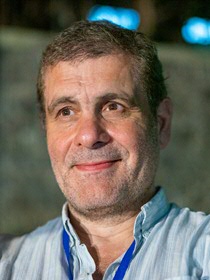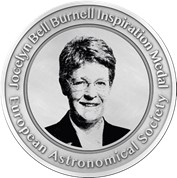Mariano Méndez receives European prize for astronomy education in developing countries
Professor in high-energy astrophysics Mariano Méndez receives the 2023 Jocelyn Bell Burnell Inspiration Medal. He receives this prize for his work over decades to set up a programme of education in space science in developing countries around the world. The prize is awarded by the European Astronomical Society (EAS).

In addition to his scientific career, Mariano Méndez has helped promote science in developing countries. He developed a programme of education on space science for the benefit of a large community of young scientists in developing countries. He also raised funds from several international organisations to carry out a programme of capacity-building workshops on space science. The workshops have so far trained more than 1500 participants from over 50 countries. Méndez carries this programme on a voluntarily basis, all while maintaining a productive scientific career.
Career
Mariano Méndez grew up in Argentina. In 1996 he moved to the Netherlands for a postdoc, and as of 2007 he is working at the University of Groningen (UG). As of 2016, he is Professor in high-energy astrophysics at the Kapteyn Astronomical Institute of the Faculty of Science and Engineering, UG.

Jocelyn Bell Burnell Inspiration Medal
The Jocelyn Bell Burnell Inspiration Medal by the European Astronomical Society is awarded to recognize astronomers at all career stages whose contribution goes beyond scientific research. Méndez is the second astronomer to receive the prize.
More information
- Astronomers take heartbeat of black hole (March 2022, NOVA news)
- 'Education in science and technology is important' (July 2018, by Science LinX, Faculty of Science and Engineering)
More news
-
11 December 2025
Stormy planets and an unexpected atmosphere
-
09 December 2025
University of Groningen Professor at COP30: ‘There is always drama’
